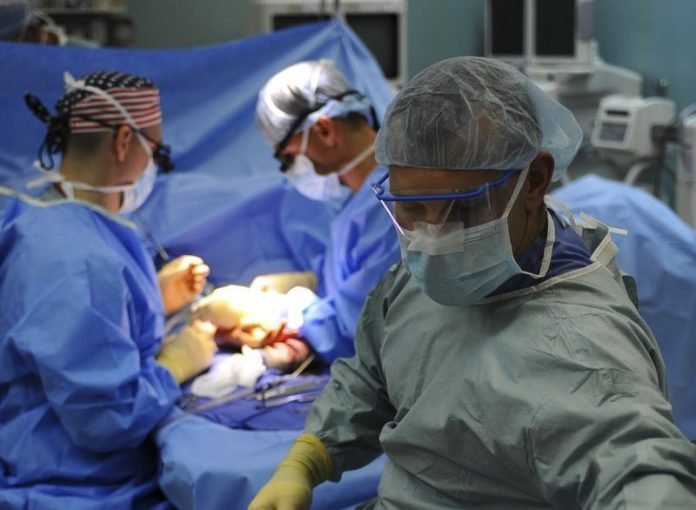
In a new study from the Mount Sinai Hospital, researchers found that women who underwent common elective or emergency surgeries with male surgeons had a 15% higher chance of dying, experiencing a major complication, and/or being readmitted to the hospital within 30 days.
In contrast, men experience similarly good outcomes regardless of their surgeon’s sex.
The team suggests it may be related to the communication between patients and physicians.
Previous studies have shown that female doctors tend to listen more, and their patients may fare better as a result.
The study included more than 1.3 million patients who had 21 common elective and emergency surgeries between 2007 and 2019.
Of these, close to 15% experienced one or more bad outcomes in the month after surgery including death, readmission, and/or a complication. Nearly 46% of patients were of the same sex as their surgeon.
Female patients treated by male surgeons fared worse after surgery, but female surgeons experienced similarly good outcomes whether they operated on men or women.
This study provides new information about the role of sex differences between surgeons and patients and the potential relationship with outcomes by showing that sex discordance does affect outcomes.
Researchers say the findings probably don’t relate to differences in surgical prowess or technical skill between male and female surgeons.
It’s likely due to something more nuanced such as how surgeons listen to people after surgery and the way that they involve family or caregivers, or listen to nurses on the floor who express concern.
Other factors may play a role, too, including how approachable the surgeon is and the level of risk he or she is willing to assume.
If you care about health, please read case about he went for knee surgery and wound up getting a new heart, and findings of surgery that may strongly benefit people with fatty liver disease.
For more information about health, please see recent studies about the small surgery that can prevent strokes in people with heart issues, and results showing that this diet may boost your gut health and weight loss.
The study is published in JAMA Surgery. One author of the study is Dr. Christopher Wallis.
Copyright © 2021 Knowridge Science Report. All rights reserved.



